

The regions Appleby College offers busing from are:
How we see Appleby College
The 50-page review of Appleby College is part of our series of in-depth accounts of Canada's leading private schools. It provides a unique and objective perspective on the school's academics, programs, culture, and community.
Read our in-depth reviewCompare with:
How Appleby College sees itself
"Founded in 1911 and located on a picturesque 60-acre campus in Oakville, Ontario, Appleby College is a university preparatory, coeducational day/boarding school for students in Grades 7–12. At Appleby, we believe every student deserves an opportunity to pursue an education that excites and challenges them. An education that offers them the chance to discover and embrace their passions both inside and outside of the classroom. Hallmarks of the Appleby experience include our Grade 12 boarding programme; our extensive athletics, arts, service and clubs; our emphasis on global learning and cultural understanding with participation in a global learning experience as a core requirement of the Appleby College Diploma; our commitment to financial assistance with over $5.3 million in bursaries, loans and scholarships annually; and our experiential learning programme centred around the S. Bruce McLaughlin Northern Campus in Temagami which this year celebrates its 50th anniversary. This coming school year we will be introducing three new diploma specializations in Business, S.T.E.M., and the Creative Arts to complement the existing Global Leadership and AP Capstone programmes. To learn more about Appleby please visit us at www.appleby.on.ca. To arrange a tour, please contact Sophie Grossman, Executive Director, Admissions at [email protected]."
"Differentiators for Appleby include; our emphasis on experiential learning - Grade 12 boarding; our northern campus and outdoor leadership programs; participation in an international learning experience. Our commitment to developing global competencies in our students by embedding cultural awareness and understanding in all aspects of the Appleby experience. Our caring and nurturing culture where students can thrive knowing that they are supported and belong."
"Families choose Appleby for multiple reasons including; the rigor of our academic programme and the fact our graduates attend some of the finest universities in the world. Our emphasis on global and cultural understanding and the diverse/welcoming character of our school community. The breadth of our athletic, arts and service co-curricular programmes. Experiential education is also a key consideration - our norther campus, boarding and global experiences."
"At Appleby we are fortunate to have a community that recognizes, appreciates and celebrates all of the elements that contribute to an Appleby College education. From our caring and nurturing culture to the growth experiences embedded in our boarding, experiential global education programmes to the incredible support the school receives from our Parents Association and Alumni, we have been able to build a legacy that speaks to the enduring nature of the Appleby experience."
"At Appleby, we want to make sure that prospective students and their families fully understand what the Appleby experience is truly all about so that when it comes to them choosing Appleby there are no surprises. If there is one area that some families find surprising it is the size and global reach of our Alumni community. We are fortunate to have an active and engaged network of 8,000+ Blue Dogs living around the world, many of whom are still very involved in our community as mentors."



Main Field
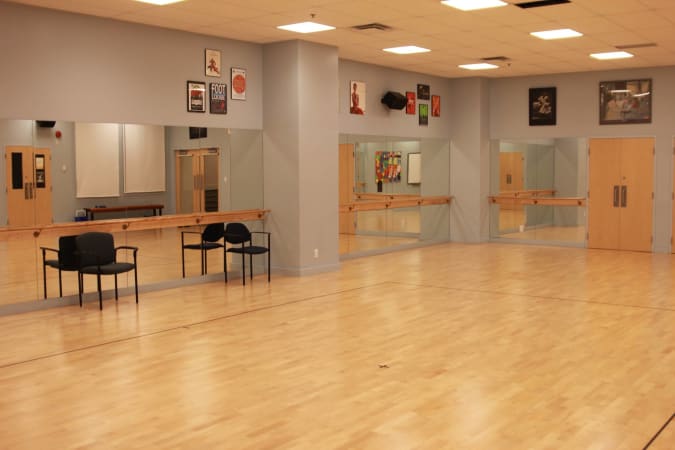
Dance studio

J.S. Gairdner Arena



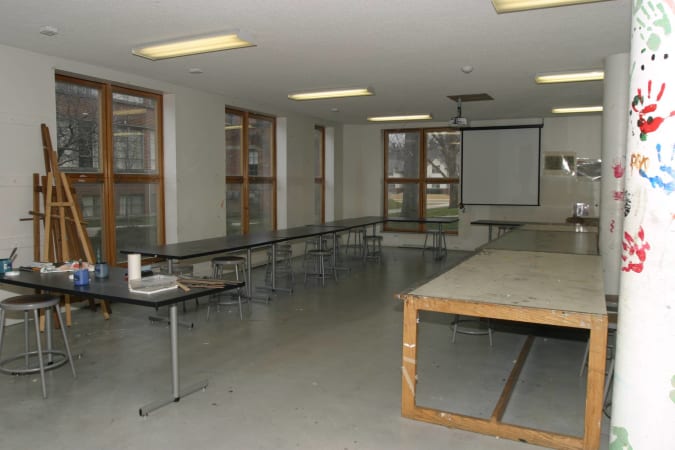
Art studio
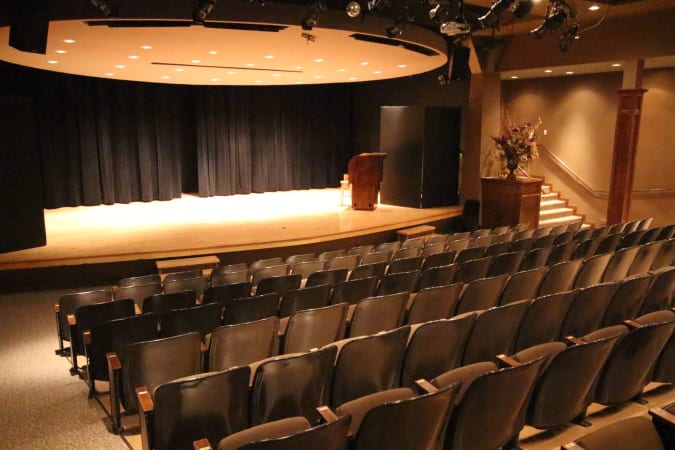
Willis Hall performance space


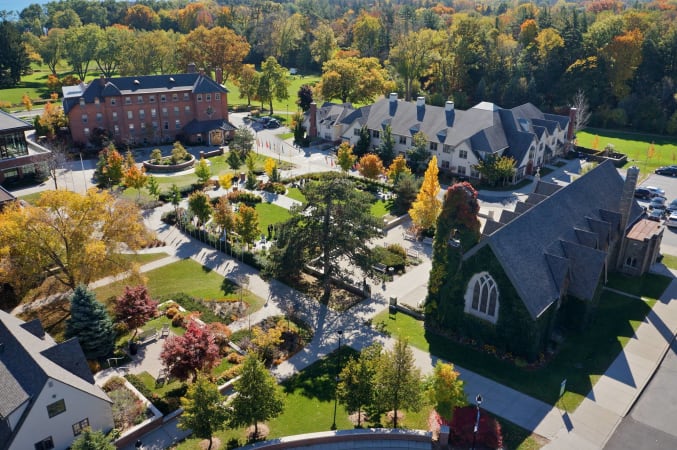
Appleby College campus in Oakville, Ontario.

Appleby College campus in Oakville, Ontario.

An aerial view of Appleby College's 60-acre campus in Oakville, Ontario.




An example of a classroom at Appleby College.
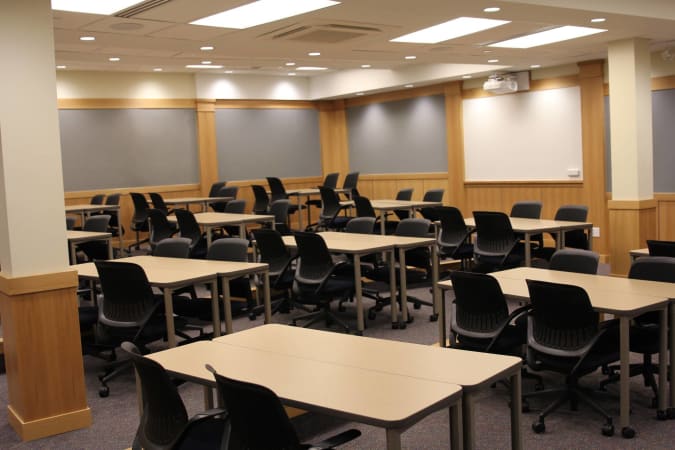
LEC classroom

Design Tech classroom




A double residence room.

A single residence room.
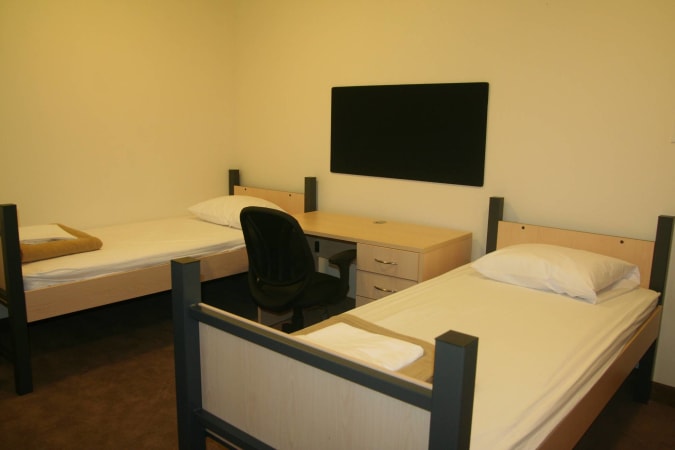
A double residence room.




Science lab

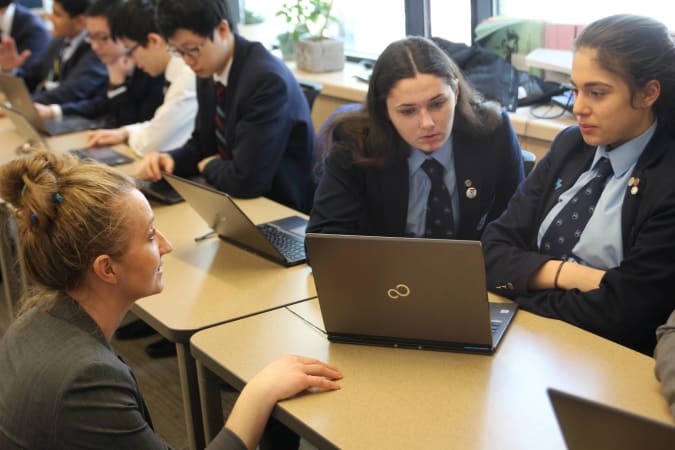
Students use tablet computers in the classroom.

White board for collaboration.
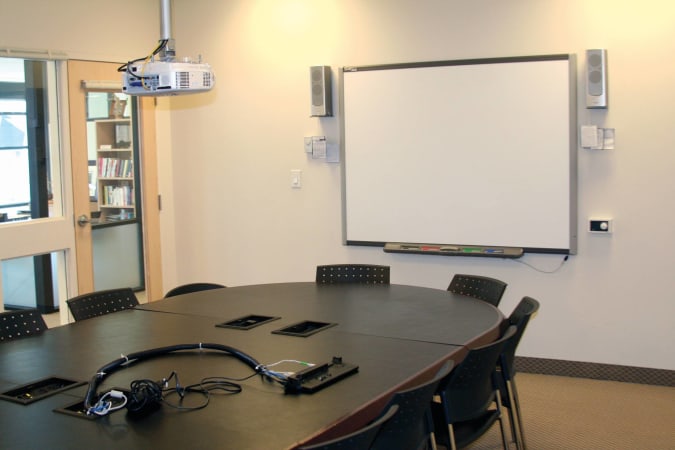
Smart board and Harkness table.




Schlesinger Dining Hall
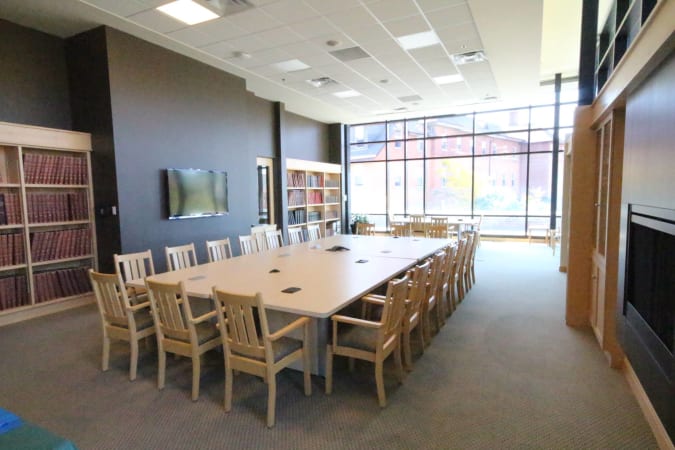
Raymond Massey Reading Room
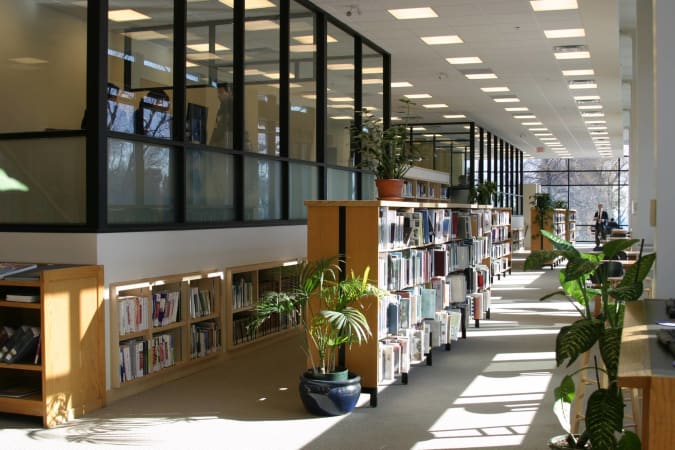
Samuel Academic Resource Centre (library)



How people from the school’s community see Appleby College
Top-down influence on the school’s direction and tone
Innes van Nostrand, Principal
Deciding where to go to school is one of those choices that feels more profound looking at it in the rear-view mirror than it does over your dashboard. When you make the right choice, it can change the direction of your life in amazing ways. Ways that only become clear after the journey.
When you speak with Appleby graduates – those who graduated last year to those who left 70 years ago, those who live across Canada and those who live around the world – they talk about the enduring nature of the Appleby experience. They talk about powerful bonds of friendship and preparedness for leadership that stay with them. Experiences that help define who they are.
Breadth, excellence, innovation and caring – this is what defines the essence of the Appleby College experience.
We challenge our students to develop high levels of capabilities across a wide range of activities – academics, athletics, the arts, service, global education, outdoor education, as well as living and working with people from a diverse range of backgrounds and perspectives. This broad experience is all-encompassing and, we believe, the right approach to prepare our graduates to be major contributors to their local, national and international communities in the fast-changing, globally-connected world of today and tomorrow.
Over the last couple of decades, we have garnered an international reputation for innovation, be it in the use of technology or global education or teaching methods. Today, we are in the midst of another exciting development as we look forward to enhancing the Appleby experience with the construction of a new athletics and student life space - the A.W.B. Alumni Centre for Athletics and Student Life. Designed to transform our capacity for indoor athletics and training programmes, the new facility will also support our expanding academic and co-curricular aspirations.
Great school culture must be central to a great student experience. We take pride in creating an environment where students know that they belong, where they find areas that they love, and where they both experience and contribute to a community that cares. We believe in growth through challenge. But equally, we believe that supporting young people is the best way to empower them to succeed in the face of that challenge.
Appleby is not for everyone. But if breadth, excellence, innovation and caring are appealing, look through this prospectus, come on a campus tour, speak with our students and faculty, and find out whether Appleby is the right place for you. Decide for yourself whether Appleby is the kind of launch pad that you want as you look down the road at your future.
I look forward to welcoming you!
Innes van Nostrand
Principal
Most big schools provide your extroverted child with plenty of social opportunities and the ability to interact with different peer groups with a wide range of personalities, interests, values, etc. A larger student population and more extracurriculars—including activities like team sports, arts programs, and debate—will give them a broader scope of opportunities to participate in events that scratch their interpersonal itch. “This may also give them the opportunity to hone certain skills,” say Ann and Karen Wolff of Wolff Educational Services. “For instance, they might run for student council to develop leadership and public speaking skills and learn to be a voice for other students.”
At a boarding school, your extroverted child will likely enjoy seeking out and interacting with peer groups from different backgrounds, away from home. In fact, studying and living with other kids for an extended period of time, as many alumni tell us, provides the unique opportunity to form close relationships that can last well beyond the school years. Many boarding schools also have large student populations and more extracurriculars—including activities like student council, team sports, and arts programs—which will give your outgoing child a broader scope of opportunities to feed off the energy of others, and possibly even become a leader, in a dynamic environment.
Keep in mind, though, “Being an extrovert can be a catalyst for getting involved in lots of activities, which can sometimes be hard to manage,” says Joanne Foster, Toronto-based education consultant and author of ABCs of Raising Smarter Kids. “For instance, a particularly extroverted child may try to end up juggling too many people and activities. While they still may thrive at a boarding school, it helps to know your child and how much social interaction they can handle comfortably.”
Make sure any prospective school, no matter what size, provides the right social environment to help your child feel at home, make friends, and develop confidence. This is especially important at big schools, which are sometimes more socially overwhelming and challenging for an introvert to find their bearings in. Of course, “Because larger schools usually have a more diverse student population, introverted kids are more likely to find a small group of people like them, a peer group they can relate to and find acceptance from,” says Dona Matthews, Toronto-based education consultant and co-author (with Joanne Foster) of Beyond Intelligence.
Bigger schools often have a broader scope of extracurricular activities, which is another way to help your child meet the right group of friends. “This may also give them the opportunity to develop certain skills,” say Ann and Karen Wolff of Wolff Educational Services. “For instance, they might run for student council to develop leadership and public speaking skills and learn to be a voice for other students. Remember, though, each child is different—so what works for one may not work for another.”
At a boarding school, your introverted child will be more motivated (and virtually compelled) to seek out and interact with different peer groups. Away from home and in a new environment, they’re more likely to take the initiative to form close friendships, which can boost their independence and confidence, and help them develop critical social skills.
"Consider, though, whether your child will be comfortable and confident while living away from home, and while having to navigate the various, and sometimes unforeseen social-emotional experiences, alongside the academic challenges,” says Joanne Foster, education expert and author of ABCs of Raising Smarter Kids. Finally, ensure support systems are in place to promote their social and emotional development, and that your child is willing and prepared to take advantage of them. Your child will often need to advocate for themselves at a boarding school, and they’ll need confidence and perseverance to do so.
THE OUR KIDS REPORT: Appleby College
Next steps to continue your research:
Continue researching Appleby College with OurKids.net, or visit school website.
